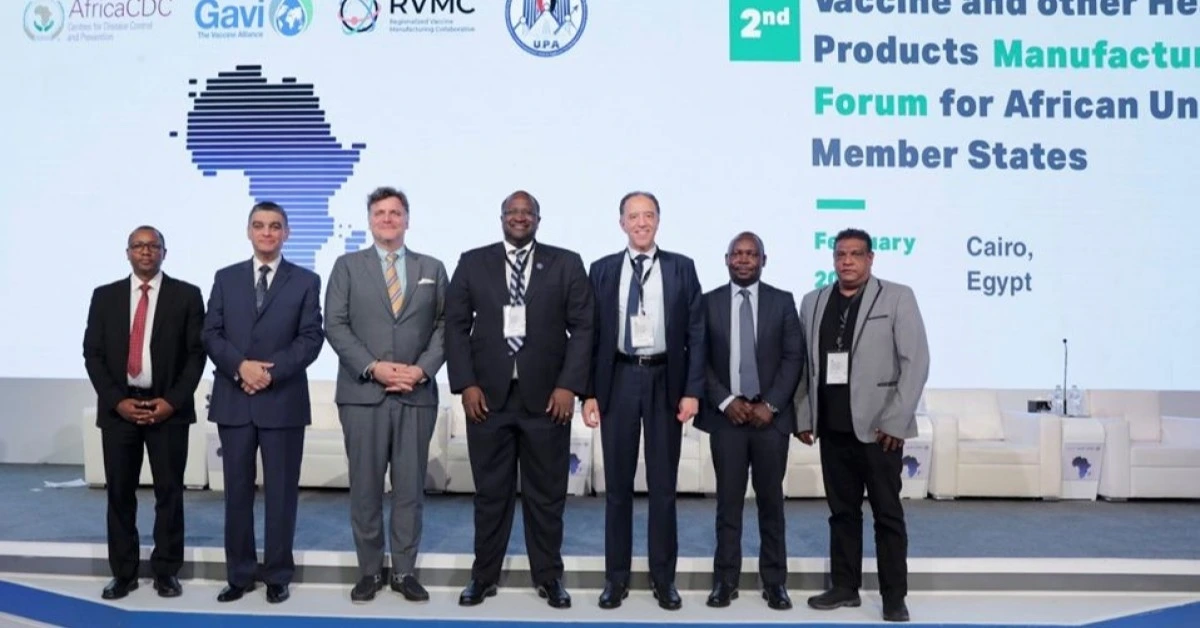
ETHIOPIA – The Africa Centres for Disease Control and Prevention (Africa CDC) has launched Regional Capability and Capacity Networks (RCCNs) to strengthen Africa’s ability to manufacture vaccines and other health products.
These networks will drive skills development, workforce training, and research across the continent, supporting Africa’s goal of producing 60% of its vaccines locally by 2040.
This initiative follows key decisions by the African Union (AU) Heads of State, including expanding the Partnerships for African Vaccine Manufacturing (PAVM) to cover medicines and diagnostics.
The AU has also introduced a Pooled Procurement Mechanism (PPM) to support African manufacturers.
Since these efforts began, Africa has made significant progress. The African Vaccine Manufacturing Accelerator (AVMA), a financing initiative, aims to unlock US $1.2 billion over ten years.
Additionally, commitments from global donors and development banks exceed US $3.5 billion, with Afreximbank pledging US $2 billion to boost the health product manufacturing sector.
A recent Africa CDC survey identified 574 manufacturers across the continent, including 25 vaccine producers, 10 of which already have production capacity.
Between 2025 and 2030, three African manufacturers are expected to receive World Health Organization (WHO) Prequalification for eight vaccines, enabling them to supply the African market and beyond.
Launching the RCCNs to bridge the skills gap
The RCCNs were officially launched at the 2nd Vaccines and Other Health Products Manufacturing Forum held in Cairo from February 4–6, 2025.
Speaking at the event, Africa CDC Director General, Dr. Jean Kaseya, called the initiative a “game-changer” for biomanufacturing workforce development.
The selected institutions leading the RCCNs are:
Launched in early 2024, the RCCNs underwent a rigorous selection process. Institutions were chosen based on technical expertise, training capacity, and regional impact potential.
Solving Africa’s biomanufacturing workforce shortage
One of the biggest challenges in Africa’s vaccine manufacturing industry is the shortage of skilled professionals in biomanufacturing, research, and regulatory affairs.
Currently, Africa has only 3,000 full-time employees in vaccine production and R&D, far below the number needed to meet its manufacturing goals.
According to Dr. Chiluba Mwila, Talent Development Lead at Africa CDC’s Platform for Harmonised African Health Manufacturing (PHAHM), Africa must quadruple its workforce to support the vaccine manufacturing ecosystem.
“Africa faces three major barriers: limited education programs, brain drain, and fragmented funding,” Dr. Mwila said. “This strategy is designed to build a world-class workforce capable of supporting Africa’s vaccine production.”
The RCCNs will focus on structured training programs, hands-on learning, and internships to develop skilled professionals.
This aligns with Africa CDC’s Vaccine R&D and Manufacturing Competency Frameworks, ensuring that workforce development is tailored to industry needs.
A Coordinated and sustainable approach
Dr. Abebe Genetu Bayih, PHAHM Coordinator, emphasized the need for a systematic approach that includes business and operational training alongside technical skills.
“Our goal is to create an enabling environment where Africa CDC and its partners can support training and workforce development in a coordinated, sustainable way,” Dr. Bayih said.
Beyond technical training, the RCCNs will encourage collaboration between research institutions and industry players, ensuring Africa’s vaccine manufacturing sector remains innovative and competitive on a global scale.
XRP HEALTHCARE L.L.C | License Number: 2312867.01 | Dubai | © Copyright 2025 | All Rights Reserved